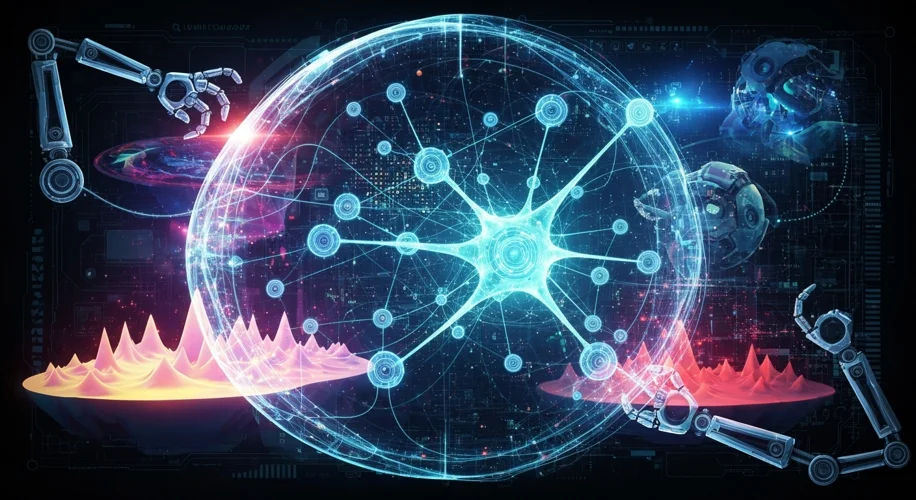Okay, so hear me out… Google DeepMind is seriously pushing the boundaries of what AI can do, and it’s getting wild.
Demis Hassabis, the big brain behind DeepMind, has been talking about their progress towards something called Artificial General Intelligence, or AGI. Think of AGI as AI that can understand, learn, and apply knowledge across a wide range of tasks, just like humans. They’re not just building smarter chatbots; they’re aiming for AI that can truly think.
One of the cool concepts they’re working with is ‘World Models.’ Imagine an AI that doesn’t just process data, but builds an internal understanding of how the world works. It’s like they’re trying to give AI a fundamental grasp of cause and effect, physics, and even social interactions. This isn’t just about crunching numbers; it’s about building a coherent picture of reality.
They’ve also got this project called ‘Deep Think.’ From what I’m gathering, it’s all about using AI to tackle super complex problems that humans struggle with, or that would take us ages. We’re talking about scientific discovery, intricate engineering challenges, and maybe even figuring out solutions to global issues.
And then there’s ‘Genie 3.’ This one is super exciting for us gamers and anyone into interactive experiences. Genie 3 is all about AI that can create interactive worlds. Instead of developers painstakingly building every single environment and character, imagine an AI that can generate entire game worlds on the fly, or create dynamic, responsive characters. This could totally change how we make and play games, and even how we interact with virtual spaces.
Hassabis has talked about how games have been a crucial testing ground for DeepMind’s AI. They’ve had massive success with game-playing AIs like AlphaGo and AlphaStar. Why? Because games are complex, have clear rules, and offer a lot of opportunities for AI to learn and strategize. It’s like a high-stakes playground for developing advanced AI.
This push toward AGI isn’t just for games, though. The same underlying principles could apply to robotics, helping robots understand and navigate the real world more intuitively. Imagine robots that can adapt to new environments or learn new tasks without explicit programming.
It’s a rapid pace of development, and it feels like we’re on the cusp of some major shifts. DeepMind’s work on world models and generative AI for interactive experiences suggests a future where AI is not just a tool, but a creative partner and an intelligent agent capable of understanding and shaping our reality.

